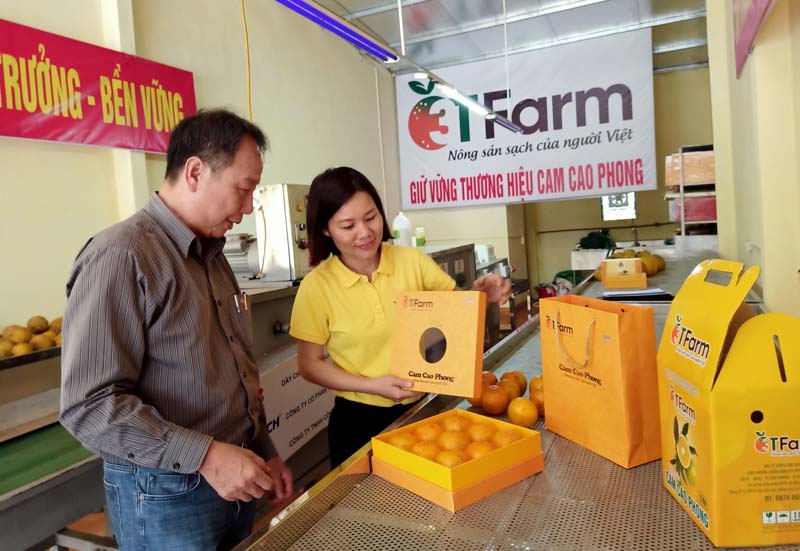
(HBO) - After ten years (2010-2020) of implementing the new-style rural building programme, Hoa Binh’s rural areas have been given a facelift. By the end of 2019, 88 out of 191 communes, or 46 percent, were recognized as new-style rural areas. On average, each commune fulfills 15.1 criteria of the programme.

The cultural house of
Yen Nghiep commune in Lac Son district has been constructed in line with
standards, becoming a meeting place for locals.
A decade of mobilizing all resources for new-style rural
building positively changed the landscape and environment and improved
infrastructure, meeting local demand for socio-economic development. The rate
of localities meeting new-style rural criteria also rose.
During the period, the entire province mobilized 21.2 trillion
VND (917.98 million USD). Of the total, only 6.3 percent were sourced from the central
budget, and the remainder came from donations of locals, enterprises, and
credit institutions, among others.
With the fund, over 4,000 km of rural roads were cemented,
while nearly 800 km of canals and ditches were upgraded. Hoa Binh also built
over 500 educational facilities, 700 cultural infrastructure works, 80 rural
markets, and 80 health facilities, among others.
Coming to new-style rural communes nowadays, we can see
farmers talking about doing business and increasing living standards
everywhere. The programme is most effective in creating consensus and
solidarity among residents so that they help each other in reducing poverty. In
communes meeting the standards or being close to achieve them, a host of models
and projects for production growth, human resources training and technology
transfer have been implemented to help farmers expand production./.
Hoa Binh province is undergoing a dynamic transformation amid Vietnam’s national digital transition. Building on Poliburo’s Resolution No. 57-NQ/TW on breakthroughs in science, technology, innovation, and national digital transformation, the province has rolled out a wide range of practical action plans. A standout initiative is the "Digital Literacy for All” movement, an effort to ensure that no one is left behind in the digital era.
Hoa Binh province is undergoing a dynamic transformation in the wake of the national digital transformation movement. Building on Resolution No. 57-NQ/TW of the Politburo on breakthroughs in science, technology, innovation, and national digital transformation, the province has implemented a wide range of practical action plans. A standout initiative is the "Digital Literacy for All” movement ambitious effort to ensure that no one is left behind in the digital age.
With a spirit of unity and proactive problem-solving, the Party Committee, the government and the people of Dong Lai Commune (Tan Lac District) have made great strides in implementing the resolutions of the 24th Party Congress of the commune for the 2020 - 2025 term. Focusing on leadership and practical actions, the commune has brought the Party’s resolutions into daily life, creating strong impacts and pushing the local development forward.
Amid the nationwide push for digital transformation, young people in Hoa Binh Province are stepping up as dynamic pioneers, applying technology to enhance Youth Union operations and expand the reach of youth-led initiatives. Through creativity and adaptability, Youth Union organizations at all levels have introduced a series of practical solutions, contributing to modern governance and community development.
In recent years, An Nghia commune, located in Lac Son district, has stepped up administrative reform, focusing on improving the quality and efficiency of its single-window service unit for receiving and processing administrative procedures. These improvements have helped create favourable conditions for local residents and organisations to handle administrative procedures, contributing to the commune’s broader socio-economic development.
The Prime Minister-approved master plan to develop the multi-use value of forests ecosystems through 2030, with a vision to 2050, aims to improve the management and sustainable use of forest resources, create jobs, increase incomes, and improve the living standards of ethnic minorities, people in mountainous and remote areas, forest workers and those living near forests.



